Profile: 'End of life care training in care homes should be mandatory', says end of life care expert
“You only get one chance to get it right,” says Professor Keri Thomas, who has spent the last decade improving the care given to people at the end of their lives. 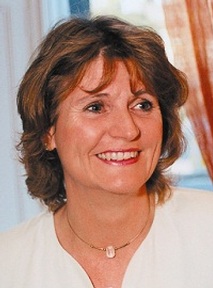
In 2000, she gave up her career as a GP and began piloting the Gold Standards Framework in end of life care.
The framework trains healthcare and social care professionals to provide a ‘gold standard’ of care for all people nearing the end of their lives in all settings.
Over one per cent of the population dies every year and in some rural areas it is even higher. “People need to face up to mortality and realise death isn’t bad in itself but a bad death is,” says Professor Thomas. “Death is part of life, so caring for people nearing the end of life and helping them to live well until they die is one of the most important things we can do.”
The National GSF Centre, a not-for-profit social enterprise company that runs the framework, is now the leading provider of training in end of life care in the UK.
Professor Thomas, who is national clinical lead for the National GSF Centre, became focussed on improving end of life care after she was widowed at the age of 25.
“I decided I wanted to use my time and energy on something significant, namely caring for people nearing the end of life. The Gold Standards Framework is all about improving the care of people reaching the end of their lives and helping them live well and die well.”
She began by piloting the framework in 12 different GP practices. “We broke it down into three steps – identify, assess and plan. I piloted the first GSF with these GPs and the framework was used in a report for the Government in 2000. In 2003 to 2005, we had some support from Macmillan so we managed to expand it to more GP practices.
“Now nearly all of GPs do the basics of GSF, that is, they have a register of palliative care patients and will discuss and plan ahead for end of life care.”
“As a GP working in hospices I saw the hospices were giving good care but when it came to GPs it was not as well organised and rather chaotic at times. It wasn’t that GPs weren’t caring, it was the system and we were being too reactive and not productive and there was too much hospitalisation.”
Home or care home is preferred place of death
Things have improved as a recent report by Public Health England’s National End of Life Care Intelligence Network (NEoLCIN) illustrated when it found there has been an increase in the number of people dying in a place of their choice.
The proportion of people dying at home or in care homes increased from 38 per cent in 2008 to 44 per cent in 2012, according to the report ‘What We Know Now’.
Home is the preferred place of care and death for the majority of people, according to research carried out over the last few years by both the think tank Demos and the National Audit Office.
However Professor Thomas believes there are still too many people dying in hospital, rather than at home or in care home, although she says “it is getting a lot better in this country but it is still not good enough”.
“Half of the deaths in hospital should not be happening there. The hospital death rate should be more like 25 per cent.”
Getting care homes on board
Over 80 to 90 per cent of people in care homes are in the final year of their lives. So the next logical step in 2004 was for the National GSF Centre to adapt the GSF for use in care homes.
“We have now trained 2,500 care homes and 500 of these are accredited and 100 have been reaccredited after three years.
“These care homes have to attain a number of standards including the top four - that they have collaborated with GPs, that they have reduced their hospital admissions and deaths, that there is compassionate care for the dying and that they record advance care planning discussions for every resident.”
It is a tough process and Professor Thomas says: “Being GSF accredited is not easy but it’s worth it. Care home providers go through nearly two years of in depth training to improve the culture and systems of care and then rigorous accreditation. The process is very rigorous and well respected externally as a marker of excellence. We find people are so proud when they do receive accreditation and the GSF Quality Hallmark Award and there are many reports of this in the local media.
“After the first year, they will have an appraisal and after three years they are reaccredited. We wanted it to be something special, and we have developed the Solid Gold Club for accredited care homes which continues to encourage best practice and long term sustainability.
“As part of GSF we encourage needs based coding according to people’s stage of life which are then colour coded to ensure that the right care is given at the right time for the right person, this includes listening to the person much earlier in their illness, seeking their needs, wishes and preferences through advance care planning discussions and putting in place a system to meet their needs – to enable them to live well and die well in the place and manner of their choosing.”
The Care Quality Commission (CQC) now recognises GSF accredited care homes and GSF accreditation plays a part in the discussion to inform the criteria for homes that are rated good or excellent. GSF accreditation also forms part of CQC’s Quality Risk Profile.
Importance of good end of life care
Good end of life care can make a huge impact, according to Professor Thomas, who wrote ‘Caring for the Dying at Home’ and edited the recent OUP book ‘Advance Care Planning in End of Life Care’.
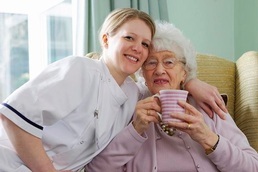
“It is often a time for people to reflect back on their lives and get their relationships in order. Important things often need to be said. It is a very special time and an important time for the rest of the family living with the fact that their relative is dying.
“When you ask people what they want at the end of their lives they often talk about relationships, being able to remain at home to die well and also deep areas related to their sense of meaning and spirituality.”
Staff at care homes say the GSF helps them to listen more to the person, and brings them closer to their residents and relatives. “Sometimes care homes will be making some small improvements in end of life care but the GSF pulls it all together in a comprehensive framework enabling all the parts to work better together,” explains Professor Thomas.
Embedding the GSF in a care home is very much a team effort but each home needs to have a key coordinator to lead it in practice. “We prefer to have a few coordinators so if the person is ill or leaves the framework is still sustainable, and also it’s very important that everyone in the care home is involved and engaged so that the work is cascaded throughout the whole home.
“Several care homes have indicated that they sometimes find it difficult to work with their GPs, so we make a special effort to improve GP collaboration and team working together in this important area. We have a 12 step better together suggestion list of ways that GPs and care homes can better collaborate, and as this is one of our top four standards, we have seen many examples of excellent progress that we showcase to others.”
Professor Thomas would like it to be a mandatory requirement for staff in care homes to have end of life care training.
“In terms of the future, we want to develop a momentum of best practice and to do that we have to grow it up from the grassroots. We want more care homes to do the GSF and realise the big difference it can make.”
Some of the standards in the GSF have already become mainstream standard practice such as a GP having a palliative care register and a meeting to discuss these patients. Professor Thomas hopes that “these examples of best policy gradually become mainstream throughout the country”.
Her dream is that one day all care homes will have the knowledge and skills to be able to encourage people to be well prepared so “When the time comes to die, dying is all that you have left to do”.
Interesting Facts
First job: Working in a kitchen
Favourite book: Yes, And… Daily Meditations by Richard Rohr
Favourite film: Butch Cassidy and the Sundance Kid
Favourite piece of music: ‘I Will’ by the Beatles
Best present you have received: My children
Last holiday: Corfu
Latest Profiles News
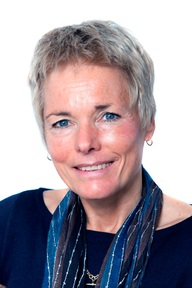 05-Sep-16
Being chief executive of a care home provider is a 'huge responsibility and privilege'
05-Sep-16
Being chief executive of a care home provider is a 'huge responsibility and privilege'
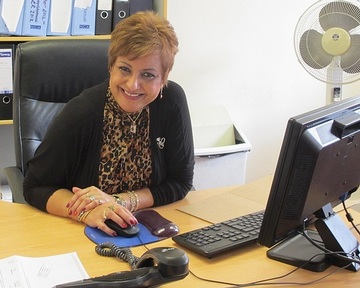 31-Mar-15
Profile: 'Both local and national Government needs to put its money where its mouth is,' says chair of the National Care Association
31-Mar-15
Profile: 'Both local and national Government needs to put its money where its mouth is,' says chair of the National Care Association
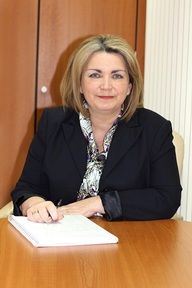 16-Dec-14
Profile: Care home turnaround specialist reveals some of the tricks of the trade
16-Dec-14
Profile: Care home turnaround specialist reveals some of the tricks of the trade
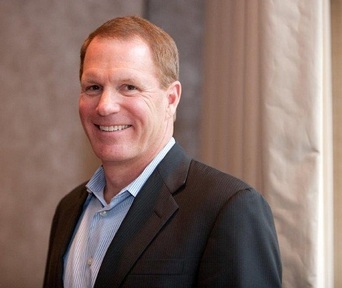 01-Dec-14
Profile: ‘People should not be dreading going into a care home – they should be looking forward to it,’ says care home boss
01-Dec-14
Profile: ‘People should not be dreading going into a care home – they should be looking forward to it,’ says care home boss
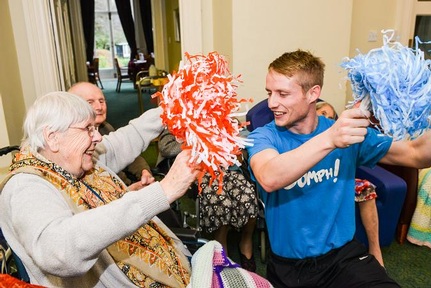 07-Oct-14
Exercise is key to 'changing the care sector' says provider of exercise therapy in care homes
07-Oct-14
Exercise is key to 'changing the care sector' says provider of exercise therapy in care homes